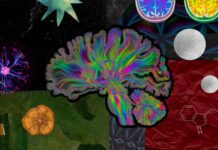- Anvisa Bans the Selling and Advertising of Ayahuasca in Brazil - February 24, 2025
- Ex-“The Voice” Singer Reports Homophobia in UDV, a Religion that Uses Ayahuasca - January 31, 2025
- Bad Trip: União do Vegetal (UDV) Ties to Far-Right Bolsonarism Resurface - January 2, 2025
Psychedelic therapy training attracts health professionals, but promises of participation in clinical trials raise ethical questions
Science in Brazil faces numerous challenges. From lack of funding to low pay, the problems are many. This reality also affects the field of psychedelic research. Despite the increase of evidence on the therapeutic efficacy of these substances, studies are progressing at a slow pace, and the sector in the country is doing its best to cater to the many people interested in the subject. Although the dream of legalization still seems a long way off, courses focused on psychedelic therapy have drawn the attention of a public eager for novelties.
Science in Brazil faces numerous challenges. From lack of funding to low pay, the problems are many. This reality also affects the field of psychedelic research.
Sold as postgraduate courses, most of them are aimed at health professionals interested in working in an innovative field, but which – here and in a lot of parts of the world – is still in its infancy. The reason is that most psychedelics remain banned. Legal restrictions, high prices and promises of participation in clinical trials raise questions about the ethics of some of these courses. Another negative point is the recent setback related to the medical use of MDMA, which will not be approved this year in the United States, as was predicted.
There is a recurring question: Where will the graduates be able to work? One fear is that the courses will help people to legitimize themselves in a circuit of supposedly therapeutic and non-legalized practices. On the internet and social networks, it is possible to find offers of psychedelic-assisted therapy made by people who do not even have the appropriate training.
An emblematic case is the company Psicodelix, which openly sells psychedelic-assisted psychotherapy on various online channels, such as Instagram and WhatsApp. The company’s CEO, evangelical pastor Bernardo Souza, who is also known for selling magic mushrooms, claims to have different training to work in the field, including an online course at Harvard Medical School in the United States. Other private clinics, with an air of legality, can also be found on the internet, offering assisted therapy with psilocybin, which is not yet authorized in the country.
Currently, in Brazil, only two psychedelic drugs can be used in medical treatments: ketamine, used as an anesthetic since the 1960s and now administered to treat severe depression and suicidal ideation; and ibogaine, the active ingredient in iboga, an African hallucinogenic root, imported with authorization from Anvisa (National Health Surveillance Agency) for the treatment of drug addiction.
Another option that is gaining momentum among psychiatrists and psychologists is psychedelic integration. Without supplying any substances, the practice seeks to promote acceptance in a therapeutic context for users of psychedelics. This procedure can serve both psychonauts in general, who make independent or recreational use of some substances, and the immense community that uses the psychoactive drink ayahuasca in religious or shamanic contexts.
A 2010 Conad (National Council of Drug Policies) resolution guarantees the right to the ritual use of ayahuasca in Brazil. The Amazonian psychedelic drink has been used for hundreds of years by indigenous peoples and, since the first half of the last century, by religious groups such as Santo Daime and the UDV (União do Vegetal).
A third alternative is clinical trials. However, these are still scarce and cater for a tiny number of patients. Researchers complain about problems ranging from a lack of funding to excessive bureaucratic obstacles, as well as the prejudice and conservatism that still obscure and delay the scientific environment in the country.
“Informing and training”
In the emerging segment of Brazilian psychedelic schools, one of the most recent initiatives is the Jornada de Treinamento em Terapias com Psicodélicos para Saúde (Training Seminar on Psychedelic Therapies for Health) program, run by the group of physicist and neuroscientist Dráulio de Araújo, from the Brain Institute at UFRN (Federal University of Rio Grande do Norte). The team of researchers has been conducting pioneering psychedelic research projects in Brazil for over 17 years, with a focus on DMT and ketamine.
The program, launched last August, is one of the arms of Camp (Advanced Center for Psychedelic Medicine), an online platform, also created this year, which aims to disseminate quality information in accessible language and pave the way for the group’s main objective: to enable clinical care with these compounds through the SUS (National Health Service).
“Camp was born with several objectives, including informing and training,” says researcher Dráulio de Araújo. Regarding the course, he argues that the group has the necessary technical competence to offer good professional training to those interested in working with psychedelic medicine.
In fact, the research they have already carried out has helped put Brazil at the top of the global ranking of psychedelic science. In 2018, the team led by Araújo was the first in the world to evaluate a classic psychedelic in the treatment of depression in a randomized double-blind study, in which researchers and patients do not know who took the active substance.
“We want to train people in the fields of medicine, nursing and psychology in protocols and models that allow them to act responsibly,” says the researcher.
According to Araújo, the last of the course’s three modules (exclusively for professionals with a technical degree, undergraduate or postgraduate degree in health and psychology) will focus on clinical practice. “In this phase, the students will have to take part as observers in sessions with psychedelics that we conduct in our research trials,” he says.
He cites as an example the case of a person who came to the group asking for this kind of help. “A few months ago, a patient who was going to undergo an intervention with ketamine in a clinic that didn’t offer psychological support asked for help in this regard, because she wanted to have this accompaniment.” The group indicated competent professionals to provide this type of care.
“We’re going to train people to understand that a psychedelic substance needs to be part of a protocol that includes safety measures.”
Dráulio de Araújo
Araújo argues that the course can also contribute to harm reduction. “We’re going to train people to understand that a psychedelic substance needs to be part of a protocol that includes safety measures.” This, he says, will allow professionals to help their patients who eventually use psychedelics.
He also believes that the course can contribute to the development of the scientific field itself. According to the scientist, among the students there are many researchers interested in working with psychedelics who do not have enough experience or knowledge. “They will soon be able to start their own research projects with psychedelics at their universities.”
Promise of Participation in Research
One of the pioneering courses in Brazil was Fopap (Training in Research with Psychedelic-Assisted Psychotherapy), run by the Phaneros Institute and created by neuroscientist Eduardo Schenberg. The training, aimed at professionals with degrees in psychology, medicine, nursing, occupational therapy and psychotherapy, promised participation in the group’s clinical research, but was closed after the second class, without carrying out any studies.
The first cohort took place in 2020, when the world was still in the grip of the damaging effects of COVID-19. The researcher had completed a small clinical trial in Brazil with MDMA (methylenedioxymethamphetamine), supported by MAPS, and planned to carry out other clinical trials. For Schenberg, the increase in mental disorders associated with the pandemic could be treated through psychotherapy assisted with psychedelics.
It sounded like great news for health professionals interested in a field that was as innovative as it was promising. For many patients with different mental disorders, the promise of new research was like a light at the end of the tunnel. Two classes were formed, with 100 students in total.
But, according to Schenberg, bureaucratic difficulties in carrying out the research made the practical part unfeasible, frustrating the promise made to the students and disappointing, in particular, the patients who volunteered for the clinical trials that did not take place.
In 2021, Schenberg reported that he had obtained authorization for six research protocols with MDMA and psilocybin. According to him, around 270 people would be treated from the beginning of 2022, over the period of two years.
The institute even announced the selection of volunteers with a variety of mental issues. “I got in touch with them, I even received an email questioning a few things, but it did not go any further,” says a source who prefers not to be identified.
As well as being a patient candidate, he was also a student at the Phaneros Institute and considers the high prices to be a negative point of the course. “They are aimed at an elite audience. Considering the average amount therapists in the country receive per consultation, I think it is expensive.”
The total cost of the course, scheduled to last two years, was more than R$50,000 in the two classes held, but the students ended up paying only half due to problems with the practical part.
The former student also commented on his frustration at the promise of participation in research that never took place. “I remember a tone of regret in the group,” he said.
A psychologist who attended courses at the Phaneros Institute and also asked not to be identified, while admitting the quality of the training, agrees that it was a disappointment for many. He complains that he never received a statement from Schenberg on the subject.

Discover the Indigenous Reciprocity Initiative of the Americas
“Anvisa is to blame”
The founder of the Phaneros Institute, Eduardo Schenberg, says that the problem is Anvisa’s bureaucracy. According to him, for the promised research to take place, a document called AEP (Special Simplified Authorization for Teaching and Research Establishments) is needed, which precedes the import of the psychedelics for clinical trials.
“Without it, you cannot even apply for another import permit. We applied for the AEP almost two years ago and they never evaluated the request. We went to the Federal Court, won, and Anvisa has not assessed our request,” laments the researcher, who now lives in Portugal.
He also complains that he could have been opening another class, graduating the second, and sending hundreds of professionals and patients to the various research protocols. “None of this has happened because of Anvisa’s anti-scientific attitude.”
Schenberg also mentions that, due to the agency’s slowness, partnerships with institutions such as USP (University of São Paulo) and UCL (University College London) are at risk. “Everything is being thrown away, years of work by dozens of people.”
Anvisa was contacted by Psicodelicamente, but only replied that it “only provides information on the progress of processes through the formal channels established with the applicants.”
Despite the imbroglio with Anvisa, last year the institute launched a crowdfunding campaign with the aim of raising half a million Brazilian reais to finance new studies. In the promotional video on the platform, Schenberg announces that, between 2023 and 2024, he would treat up to 220 patients in five clinical trial protocols, using MDMA and psilocybin-assisted psychotherapy, approved by the National Health Ethics Commission (the body responsible for the ethical evaluation of research involving human beings in Brazil).
According to the video, the research would be carried out with the participation of 100 health professionals being trained in the two classes of the course, spread across approximately 20 cities in different states of the country.
When asked why he kept the announcement until last August, even though he knew he would not be able to carry out the studies, Schenberg said he still believed it was possible. “Now, in the final stretch, after the court ruling, we were hopeful that Anvisa would grant the authorization.” The campaign’s website states that just over R$67,000 has been raised – far less than the R$500,000 target.
The researcher did not explain why he has not filed a writ of mandamus, an appeal to force Anvisa to comply with what has been ordered by the courts. However, there are indications that Schenberg’s problems were not just with Anvisa.
According to an anonymous source in the US, even if Schenberg managed to get approval from Anvisa, he would not have a contract to import some of the psychedelics. This is because the purchase agreement he had with Lykos, the commercial division created to direct MAPS’ research, was broken, among other reasons, due to the size of the MDMA shipment he wanted.
“The proposal was too ambitious, he wanted to treat 100 people with MDMA, which takes years, but he wanted to do it all simultaneously in 50 locations.” Lykos was contacted, but would not comment on the case.
Schenberg also shied away from the subject, but denied that this would prevent the research. “We only discussed possibilities, imagining scenarios. Lykos could be one of the suppliers of MDMA. We have contact with other suppliers too, as well as with more than one psilocybin supplier.”
Another sensitive point in this imbroglio is the link with MAPS, something that has always been widely propagated by Schenberg’s group. The training program was even joined by Michael and Annie Mithoefer, who led the clinical studies with MDMA in the USA. The association claims to be unaware of Schenberg’s promise to the students about participating in clinical trials and says he was never an official representative.
“We have no agreement or structure under which someone can become our ‘representative’ in countries outside the US, although we have collaborated with organizations and independent researchers around the world,” explains Betty Aldworth, director of education at MAPS.
Without going into details, Schenberg says that the US association is not a “partner” of the Phaneros Institute, nor has it ever been, due to legal implications. He defends himself by arguing that his training never came from MAPS: “It is 100% Brazilian, created by us, from beginning to end, including collaborations. There was never any question of importing their method, neither of therapy nor of training. We have always had complete autonomy in pedagogical and strategic decisions, including the choice of suppliers.”
Schenberg informed the WhatsApp group of the course’s students of the definitive cancellation of Fopap. The report had access to the researcher’s statement, sent at the beginning of September. However, on the Phaneros Institute website, the course remains active. As of the closing of this report, no official statement has been released.

Shop our Collection of Psychedelic T-Shirts
First Psychedelic Postgraduate Course
At the beginning of 2023, something new caught the attention of psychonauts in general: information began to circulate on social media about the first lato sensu graduate course authorized by the Ministry of Education (MEC) to train psychedelic therapists.
Like the Phaneros training, the course offered by the Alma Viva Institute, linked to the company Biocase Brasil, also announced a practical part in a study with psilocybin, in which 100 cancer patients were to take part.
The postgraduate course, aimed at doctors and psychiatrists, has some well-known names in the psychedelic milieu among its teachers. However, although a new class has already started, the research announced for 2023 has not yet begun.
The institute told the report that it is finalizing the import of 18 kilos of psilocybin in natura for US$45,000 dollars. It will be necessary to develop a pilot batch of the product with partner pharmaceutical companies and laboratories before requesting authorization for a phase 1 study, which will focus on resistant depression and should only involve a few patients.
With regard to the clinical trial for existential anxiety with 100 cancer patients, the company plans to carry it out soon, but with the mushroom in its natural state and not with medication.
The research, according to the Alma Viva institute, will be possible once all the approval stages already carried out in São Paulo have been completed. They also depend on Uninorte in Acre, a university linked to the institute, also obtaining the necessary authorizations.
“Academic studies with substances such as psilocybin can only receive authorization from Anvisa in this way, through a university institution, according to the new 2022 rules,” explains Cesar Camara, scientific director of the Alma Viva Institute and coordinator of the graduate course.
The graduate students will be able to take part in practical activities in the study that has already been approved, but the director points out that, with the licenses obtained at the clinic, the students will also have the opportunity to have contact with a regulated psychedelic: ketamine, administered intravenously and intranasally.
‘There is a gap between research and training’
For some experts in the field, the increase in the number of training courses on offer is positive and is related to certain movements in the sector. According to psychotherapist Daniela Monteiro, director of the APB (Psychedelic Association of Brazil), the number of studies in the country is increasing, as is the number of universities opening up to this type of research.
Monteiro recalls that the country was featured in a survey published in 2021 in the Journal of Psychoactive Drugs. In the article by Canadian researcher David Wyndham Lawrence, Brazil is listed as third in the world in the ranking of scientific articles with an impact, behind the United States and the United Kingdom.
“What happens in the field of research influences the training process.”
Daniela Monteiro
“What happens in the field of research influences the training process,” Monteiro believes. Today, there are universities researching psychedelics in all regions of Brazil.
However, the researcher believes that there is still a gap between research and training. “The meeting between scientific studies and education has always been an important agenda for the APB. We have been talking about it since the association was founded.”
Monteiro also emphasizes the importance of communication for education about the use of psychedelics. The association was one of the pioneers in holding courses with a more introductory and educational approach, aimed at the general public and with an emphasis on harm reduction. In 2022, the APB launched the course “The Manifest Mind,” which addresses clinical and political aspects of the use of psychedelics. In the same year, it held the first Brazilian Congress on Psychedelics, which will have a second edition this year, on November 8 and 9, at Ipub-UFRJ (Institute of Psychiatry of the Federal University of Rio de Janeiro).
“The general interest is growing, despite the many narratives that try to claim that only clinical and biomedical research is advancing,” adds psychologist Sandro Rodrigues, one of the founders of the APB.
“There is a multiplication of fields of interest and issues that intersect,” he observes. He cites as an example an issue of the journal of the State University of Ceará, which published a special issue on psychedelics, with 20 articles exploring this theme in the field of philosophy.
With regard to courses, Rodrigues has reservations about the training offered in psychedelic-assisted psychotherapy. “There are people paying a fortune, believing in the promise that these substances will be regulated.”
For the psychologist, even if regulation does occur, the prices for the therapeutic model in which these substances are being studied will be prohibitive for a large part of society. “How many people would like to go to therapy, but cannot because it is too expensive?” he ponders. But regardless of regulation, the use of psychedelics will continue, and “education must build a culture in relation to the diverse uses of psychedelics.”
Translated by Henrique Antunes.
Art by Mariom Luna.
Note: This article originally appeared in Portuguese on Psicodelicamente HERE.
Take a minute to browse our stock:
Did you enjoy reading this article?
Please support Chacruna's work by donating to us. We are an independent organization and we offer free education and advocacy for psychedelic plant medicines. We are a team of dedicated volunteers!
Can you help Chacruna advance cultural understanding around these substances?














